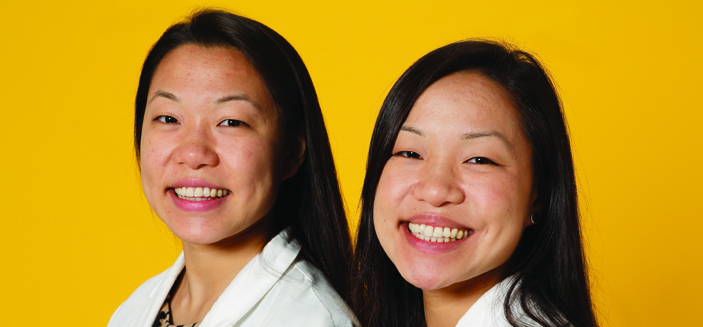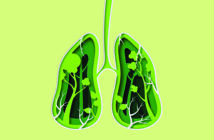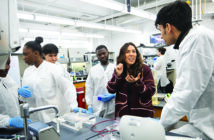Four years of hard work lead to one defining moment: Match Day. The third Friday in March is known at medical schools across the country as Match Day. It’s the day the graduating fourth-years find out where they have been placed for residency training. It’s a day when dreams are realized—and sometimes, deferred. We talk to seven members of the MD Class of 2014 about their journey to Match Day, and what comes next as they begin their lives as physicians. But future doctors face an uncertain matching process, as medical schools graduate more students than there are residency spots to accept them. Here’s a deeper look at the Match Day experience, present and future.

Nachiketa Gupta, PhD MD’14
31 years old | Emergency Medicine
With multiple degrees in math, computer science, and economics, and careers in missile defense and finance already under his belt, Gupta doesn’t settle on one thing for long. So rather than pick one specialty, he ranked both plastic surgery and EM programs for the match. “I did exactly what you’re not supposed to do,” he says. But ultimately, “I chose breadth over depth.” After earning five degrees in three years at Penn, Gupta spent a year at MIT Lincoln Laboratory before crossing the pond to earn his doctorate; he then worked at a hedge fund in Washington, DC, as he mulled the transition to medicine. “I wanted to see people, to do something that felt better,” he says. The summer after his first year, he gained clinical experience at a small hospital with intermittent electricity in Gombe, Uganda, where he learned to suture and put in an IV, and left his camping lantern behind so the OR would have light at night. “It was really rewarding,” Gupta says. A snowboarder and bass player, he’s thrilled to finally fulfill his lifelong dream to live in New York. He’s certain the city, and the emergency department, will keep him on his toes. “You learn the best way to treat things, you know the health care system,” he says. “You never know what you’re going to see.”
 Matt Klein, MPH MD’14
Matt Klein, MPH MD’14
27 years old | Emergency Medicine
Klein has wanted to be a doctor as long as he can remember—though he’s not sure where the instinct came from. “No one in my family can stand the sight of blood,” he says. When he was in middle school, “I changed the gauze for my [younger]brother when he got his teeth pulled, because my mom couldn’t do it.” At Yale he joined the EMS group and worked nights as a tech in Yale-New Haven Hospital’s ED. “I was hooked,” he says. During med school, Klein volunteered with the Brown Student Community Clinic and did research with EM professors Esther Choo, MD, MPH and Megan Ranney, MD RES’08 MPH’10; in 2012 he presented a poster, of their study on the correlation between risky behavior by youth and the age they start drinking, at the American Public Health Association meeting. “It was my first opportunity to present at a big conference,” he says. The former cross country athlete also made time to train for and run three marathons, including Boston and Chicago. He feels well prepared for the residency marathon to come. “I’m ready to take the next leap,” Klein says. “This is what I’ve wanted to do for a long time.”
 Alisha Lakhani, MPH ’08 MD’14
Alisha Lakhani, MPH ’08 MD’14
27 years old | Medicine
Lakhani describes her decision to attend medical school as an evolution. “I wanted to work in the health care space, but I wanted more tools,” she says. She elected to earn her MPH to gain real-world skills to complement her academic knowledge. Her desire to become a doctor was born in Mozambique, as she was finishing her master’s. “I was going hut to hut in the village, asking mothers about the burden of waterborne disease in their children,” Lakhani says. “I saw these very serious problems and ill children, but lacked the tools to advise the mothers.” Her resolve was strengthened during her time working at a pharmaceutical consulting company: “The strongest voices in the room were always the doctors. They had real-world experience and the knowledge to run a large organization.” She fondly remembers signing the wall of the anatomy lab in the Biomedical Center on the main campus—the MD Class of 2014 was the last to study in that building, and the last to leave their autographs. “Even though no one will get to see it now,” she says, “there was something special about putting your name on the wall with all your other peers.”
Linda Ratanaprasatporn ’10 MD’14
25 years old | Radiology
Lisa Ratanaprasatporn ’10 MD’14
25 years old | Radiology
The Ratanaprasatporn twins were always encouraged to be individuals, and say they’ve never tried to do the same things. But nature—or is it nurture?—keeps bringing them together, from childhood dreams of being actors, to their application to Brown’s Program in Liberal Medical Education, to their choice of specialty. Still, they didn’t intend to couples match. “We weren’t sure what the feedback would be. … There’s a point where this [twin]thing stops being cute and just becomes weird,” Lisa laughs. “We didn’t want to compromise our ability to get into the best program,” adds Linda. “It was actually the people who interviewed us who made us think we should do the couples match.” Still, it wasn’t until each had made her match list that they decided to go for it. “Our lists were identical,” Lisa says. Now that the suspense is over, they’re thrilled they’ll be together after all. “I look forward to having Linda as my colleague. … We work professionally well together, and it will be fun to collaborate in the future,” Lisa says. Her sister adds, “There’s something synergistic when we work together.” They enjoy a similar harmony in their free time, whether they’re dancing, gardening, or baking 250 cookies in one day when they should be studying for a shelf exam. As for most new MDs, PGY1 will mean big lifestyle changes—most notably, they’ll live in different cities for the first time in their lives, if only for a year. “Even though [Cambridge] is only an hour away,” says Linda, who will stay in Providence for her prelim, “I’m already looking forward to when we can be reunited.”
 Jordan Sack ’10 MD’14
Jordan Sack ’10 MD’14
26 years old | Medicine
Most of us don’t recall learning to hear and speak, but for Sack—born with severe to profound hearing loss and unable to hear his teachers, the TV, or the sound of his own voice—it’s a recent memory. At age 10 he underwent surgery to receive a cochlear implant, which converts sounds into electrical impulses that are transmitted to his inner ear. Though it helped him hear, it wasn’t a quick fix. Sack was two grade levels behind in vocabulary and needed intensive speech therapy to catch up. “Going through this journey, learning to hear and to speak, really made me want to give back,” he says. Sack works to empower others with hearing loss as chairperson of the Rhode Island Commission on the Deaf and Hard of Hearing, and says a medical career promises to be a rewarding way to support the community that has supported him. Sack uses numerous strategies to ensure he can hear everything, including a special stethoscope that plugs into his implant so he can fully assess a patient. He says internal medicine seemed the best specialty to connect with patients. “I enjoy getting to know my patients, learning about their complex medical problems, and caring for them,” he says.
 Catherine Chamberlain MD’14
Catherine Chamberlain MD’14
31 years old | Family Medicine
Long before she’d even applied to medical school, Chamberlain worked in primary care—she just didn’t know it. After college, she took a job at Adult Protective Services in Texas before serving for two years in the Peace Corps, as a health educator in Albania. She then worked for the Baltimore City Health Department, assisting the health commissioner and writing grants. “All of this is primary care to its core—helping this underserved population,” she says. Her decision to attend med school was largely influenced by her time in the Peace Corps. “I was telling people, ‘Stop smoking cigarettes, they’re bad for you,’but I realized that I didn’t know exactly why they were harmful, and I couldn’t help people who were already sick,” she says. “I wanted the whole picture.” At Brown, Chamberlain took care to nurture her other interests, running two half-marathons, gardening, and volunteering for Habitat for Humanity. She’ll continue giving back after graduation, too: as part of the National Health Service Corps, she’s bound to work a few years at a clinic in an underserved area. But first she’s focused on relocating and transitioning to residency. “At this point, we [med students]know how much we don’t know,” Chamberlain says. “The next step is starting to fill in all of those pieces.”




